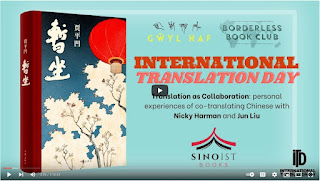Reshma Ruia is an award winning British Indian writer. She is the author of two novels, Something Black in the Lentil Soup and Still Lives, (out in 2022). Her novel manuscript, A Mouthful of Silence, was shortlisted for the SI Leeds Literary Award. Her poetry collection, A Dinner Party in the Home Counties was awarded the 2019 Word Masala Award. Reshma’s work has appeared in British and international journals and anthologies and has been commissioned by the BBC. She is the co-founder of The Whole Kahani, a writers’ collective of British South Asian writers. Her writing explores the preoccupations of those who possess a multiple sense of belonging.
Mrs Pinto Drives to Happiness is her new short story collection. The stories explore universal themes of identity, culture and home and are about characters who are grappling with the socio-economic upheavals of contemporary life - everyday people whose lives oscillate between worlds and are shaped and reshaped by an imperative to anchor to a map or a feeling. A lonely woman develops an unhealthy obsession with a celebrity writer. A young man attends the funeral of his gay lover. A feisty woman escapes a life of domestic drudgery. Characters confronting ageing, love and displacement with anger, passion and quiet defiance. Characters in search of new beginnings and old certainties.
So, over to Reshma…







